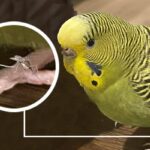Are you a chicken owner curious about whether it is safe to feed cat food to your chickens? The question of “can chickens eat cat food” is a common one, and in this comprehensive guide, we will explore the risks and benefits associated with this dietary choice.
Join us as we uncover the truth and provide valuable insights to help you make informed decisions for your flock of chickens.
The Composition of Cat Food
Before delving into the topic we need to understand the composition of cat food which is meticulously formulated to meet the unique nutritional needs of cats.
Typically, it contains high levels of animal-based proteins, essential nutrients, and vitamins necessary for a cat’s overall health.
However, the key lies in understanding the distinct dietary requirements of chickens. Below is the comparison of cat food and chicken food. You can easily notice the abundance of protein and fat in cat food.
| Nutrient | Cat Food Nutrient | Chicken Food Nutrient |
| Protein | 26-30% | 18-22% |
| Fat | 9-12% | 3-5% |
| Carbohydrates | 20-25% | 55-65% |
| Calcium | 0.8-1.2% | 0.8-1.2% |
| Phosphorus | 0.8-1.2% | 0.6-0.8% |
| Vitamin A | 1,000-1,500 IU | 1,200-1,800 IU |
| Vitamin D | 200-300 IU | 400-600 IU |
| Vitamin E | 10-15 IU | 10-15 IU |
| Iron | 15-20 mg | 40-60 mg |
| Zinc | 15-20 mg | 40-60 mg |
Potential Risks of Chickens Eating Cat Food
While cat food may seem enticing due to its protein content, it poses potential risks for our chickens. Feeding chickens a diet that is high in protein and fat can pose several risks, such as
Kidney Damage
Chickens’ kidneys filter out excess protein and fat from their blood. If they consume too much of these nutrients, their kidneys can become overwhelmed and damaged.
Liver Problems
The liver is responsible for processing protein and fat in chickens. A diet that is high in protein and fat can strain the liver and potentially cause liver issues like fatty liver disease.
Weight Gain
Chickens on a high-protein and high-fat diet are more likely to gain excess weight and become overweight or obese. This can lead to various health complications including heart disease, diabetes, and respiratory problems.
Nutrient Deficiencies
A diet rich in protein and fat may push out other vital nutrients from the chickens’ diet, resulting in deficiencies. This can lead to health problems like anemia, skin issues, and poor feather quality.
Chickens have specific nutritional needs that differ from those of cats. Feeding them an imbalanced diet can result in deficiencies or excesses which will adversely affect their overall health.
Benefits of Feeding Cat Food to Chickens:
Although cat food is not ideal as a staple diet for chickens, it can serve as a supplementary source of protein. Protein is essential for feather growth, muscle development, and overall chicken health. Here are some benefits which we are laying down so you can understand the benefits.
Additional Protein
Cat food serves as a valuable protein source which is crucial for chickens on some occasions. When chickens have increased protein requirements such as during molting or egg production, supplementing their diet with cat food ensures they receive sufficient protein.
Other Essential Nutrients
Cat food contains additional nutrients that benefit chickens which include vitamins A, D, and E. These vitamins can enhance chickens’ immune systems, promote healthier feather growth, and contribute to the production of higher-quality eggs.
Support During Molting
Molting is a natural process for chickens but can be physically demanding and stressful. By providing cat food during molting, you can help reduce stress and support healthy feather regrowth.
Enhance Egg Production
Chickens require substantial protein levels for optimal egg laying. Incorporating cat food into their diet can boost egg production and improve the overall quality of the eggs they lay.
Some chicken owners have reported positive results when incorporating small amounts of cat food into their chickens’ diet. However, it is crucial to exercise caution, moderation, and balance.
Best Practices for Feeding Cat Food to Chickens
If you decide to introduce cat food into your chickens’ diet, it is essential to follow best practices to ensure that it is not overfed them. Moderation is key, as excessive consumption of cat food can lead to imbalances and health issues as mentioned earlier.
Here are some guidelines for safely providing cat food to chickens
Treat, Not Staple
Cat food should only be given as an occasional treat, not as a primary food source for chickens.
Opt for Quality
Select high-quality cat food that is formulated specifically for adult cats. Avoid cat food that contains excessive additives or fillers.
Controlled Portions
Limit the quantity of cat food to no more than 10% of your chickens’ daily diet. This helps maintain a balanced nutritional intake.
Balanced Diet
Ensure that your chickens have a well-rounded diet by providing them with a variety of foods. Alongside cat food, offer them a balanced chicken feed that meets their nutritional requirements, as well as access to insects and greens.
By following these tips, you can safely incorporate cat food as an occasional treat while ensuring that your chickens receive a balanced and nutritious diet overall.
Keep a close eye on your chickens for any signs of adverse effects from the cat food. If you notice any of the following symptoms, it's important to discontinue offering cat food to your chickens.
If your chickens suddenly lose interest in their regular feed or show a reduced appetite, it could indicate an issue.
This is one of the most common symptoms of chickens being affected by cat food. It can be caused by the high levels of protein in cat food, which can be difficult for chickens to digest.
Chickens that eat too much cat food may become lethargic or aggressive.
Conclusion
In conclusion, while chickens can consume cat food, it comes with inherent risks and challenges. The high-fat content and potential nutritional imbalances make cat food less than ideal as a staple diet for chickens.
Therefore it is crucial to prioritize a balanced and appropriate chicken-specific feed to fulfill their dietary needs effectively.
Feeding cat food to chickens should be done sparingly, with a focus on moderation and seeking expert advice. By understanding the risks and benefits, you can make informed decisions that prioritize the health of your beloved flock.
We hope this article has shed light on the question, “Can chickens eat cat food?” Remember, responsible and informed decision-making is essential for ensuring the optimal nutrition and care of your chickens.
Have you ever considered feeding cat food to your chickens? Share your experiences, thoughts, and questions in the comments below. Let’s continue the conversation and support one another on this journey of raising happy and healthy chickens!









